Afghanistan War, Civil Liberties, Human Rights, Iraq War, Targeting Muslims, Torture, Truth to Power, War Resister
Podcast: Play in new window | Download

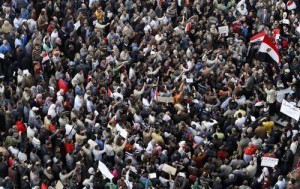
A People’s History of the Egyptian Revolution
Egypt’s revolution didn’t suddenly happen overnight, there was long important history. Beginning with Egypt and Israel signing the Camp David Accords in 1979 Egypt was rewarded with billions in US military aid that paved the way for neo-liberal style policies under Hosni Mubarak. By 2000, the first signs of widespread opposition started in solidarity with the Palestinian Intifada. The protests centered around poverty, corruption and need for democracy. A second wave of mass opposition ignited in 2003 in response to the US invasion of Iraq and Egypt’s support for the war. Then the April 6 movement rose in 2008, protesting against rising food costs and low wages. By 2010 social media and blogs were outlets for organizing and dissent.
Guest – Co-writer of the article and founder of Left Turn Magazine Rami El-Amine.
Guest – Activist Mostafa Henaway who also contributed to the article A People’s History of the Egyptian Revolution.
—-


Former U.S. Attorney General Ramsey Clark on War of Aggression in Libya
As many listeners know, the military operation in Libya is not a humanitarian intervention, it is part of the global war and effort to militarize North Africa. The Chinese have sizable interests in Libya in the battle for oil. Meanwhile, the Gaddafi leadership has continued to function despite the NATO bombing campaign in the last four months and the loss of significant parts of the the country. Congresswoman Cynthia McKinney had recently returned from a fact finding mission in Tripoli during a time of intense bombing. She has organized speakers to discuss how billions are spent in this military operation while we’re being told there are no funds available for jobs, health care and education. Former US Attorney General Ramsey Clark was among the speakers, he’s been following the US and NATO involvement in brutal attempts to overthrow the Gaddafi government.
Attorney Ramsey Clark:
- The reality is that its a war of aggression, which the Nuremberg charter and judgement defined as a supreme international crime.
- What we’ve done is used the appearance of a civil war, people rising up against their own government, to wage a massive assault. – really unrelated to their activities, the first place we hit was Tripoli, they were no where near Tripoli and we bombed the daylights out of it.
- The bombing is spreading away from the compound, its hitting areas outside of the city. Interesting to note, people are still fleeing from Iraq to Syria. It’s safer in Syria, we read in our newspapers it’s violent in Syria.
- If you go back to Rwanda, and remember how everybody was outraged afterward but nobody intervened.
- A clearer illustration is what’s happening in the Democratic Republic of Congo, where hundreds of thousands of people have died and are dying by armed troops. Nobody bothers to intervene.
- What you do is, you want to go in anyway, you use humanitarian intervention as justification.
- The poor Congress is defaulting on its responsibility. The military budget exceeds all of the civilian budget. They can gloss over it but until we address the issue of US military expenditures, our country will be a threat to peace in the world.
- We spend more on the military then the rest of the world combined. It’s almost impossible to think that the United States will curtail its foreign aggressions, while the military expenditures are at what they are.
- We’ve got in the Pacific Ocean today, 8 Trident nuclear submarines, the cost is enormous each one carries 140-145 nuclear warheads, anyone of which can destroy the biggest city in the country and go beyond it, their largest warhead will leave a crater with a 25 mile diameter.
- Hard to sleep in Tripoli and other places that are under direct attack by us.
- We tolerated him for 40 years while he created the highest standard of living in all of Africa. Highest per capita income, highest levels of education. Health care and more public housing then they can use for their own citizens. – almost enough for their foreign labor. He doesn’t submit to the will of the United States.
- Sub-Sahara Africa primarily, all the places on Earth are dying. It’s not just the conditions of weather in East Africa, but everyplace you go, structure’s crumbling. The chaos seems to be spreading and we seem to prefer it.
- Rebel Forces: It’s a group that doesn’t always know each other and doesn’t always like each other.
- We took out all of Gaddafi’s planes which was easy to do. It’s easy to hit his armor.
- They’ve held their own against the might of West Europe and the United States for months and months.
- We (U.S.Government) agreed to pay without admitting liability 300 million dollars for the people killed in 1986 by our bombing.
- People have to organize and rise up. I don’t think we’re going to get anything accomplished as far as peace and reduction of US militarization except by an enormous demand by the people.
- We can cut 90 percent of the military spending in my opinion and be safer, and not be engages in all these interventions – which we can’t handle anymore.
Guest – Attorney Ramsey Clark was the former Attorney General of the United States, under President Lyndon B. Johnson. He was the first Attorney General at the Justice Department to call for the elimination of the death penalty and all electronic surveillance. After he left the Johnson administration, he became a important critic of the Vietnam War and continued defending the rights of people worldwide, from Palestinians to Iraqis, to anyone who found themselves at the repressive end of government action.
—


National Lawyers Guild Lawyers Victorious in Internet Free Speech Case
At a 2008, Sunday Service at the Mount Hope Baptist Church in Lansing, Michigan, members of the queer rights group Bash Back! disrupted the service to protest anti-gay policies. Months later, the church and the Alliance Defense Fund, a reactionary Christian nonprofit organization, sued Bash Back! and 15 named activists under the Freedom of Access to Clinic Entrances Act. The church and Defense Fund subpoenaed identifying information in an attempt to find out the protesters’ identities; Risup.net, a provider of online communication tools for individuals and groups working for social change, was the only email provider to challenge the subpoenas. Federal judge Richard A. Jones ruled that Riseup.net did not have to turn over the records, finding that “the Users’ First Amendment right to speak anonymously online outweighs Mount Hope’s right to discovery.” National Lawyers Guild members Larry Hildes of Bellingham, Washington, Devin Theriot-Orr of Seattle, and Mark Sniderman of Indiana successfully defended several activists who received subpoenas from Mt. Hope Baptist Church demanding they turn over their internet account records. Once again, this shows how readily corporations share private personal data on activists with the government or other private entities.
Attorney Larry Hildes:
- This church is particularly virulent with their ministry aimed at turning gay people straight.
- The group picketed outside and tried to pass out leaflets inside. Two women ran to the front of the sanctuary and kissed each other at the alter.
- Mount Hope Baptist Church called the police. The police showed up and said there’s no criminal activity here.
- The Alliance Defense Fund, a huge fundamentalist law firm and fund raising empire in Scottsdale, Arizona contacted the church and said we’ll take on your case.
- They sued the Bash Back folks under the “Faith Act” – Freedom To Access To Clinics Act. They sued them and settled for 2500.00 and a consent decree that they would never disrupt a religious service in the United States again.
- In the meantime they went to look for anyone connected with Bash Back in any way. They went to Yahoo and subpoenaed records from list-serves and Yahoo without telling anybody gave them what they wanted.
- Then they went after RiseUp and RiseUp prides themselves on two things, the internet voice of the left and privacy for their subscribers.
- Riseup attorney Devin Theriot-Orr outlined the internet case law, there is some good law.
- In order to engage in free speech you need to have some degree of security and safety that your privacy is going to be protected otherwise, it chills the climate so that very few people are going to be able to take that risk.
- The victory is that there is a first amendment right to be on a list-serve of a group, even a group whose actions can be seen as civil disobedience or illegal. Your information is still protected and private and the Freedom of Association Privilege goes to that.
- We were awarded by the court 28 thousand dollars in fees.
—————
Attorney Devin Theriot-Orr:
- I’m the pro-bono lawyer for RiseUp.net. The identity information of subscribers is protected by a longstanding precedent going back to 2001.
- Obviously the first amendment has its limits, you can’t speak anonymously about threatening to kill people.
- One of the caveats of the first amendment is that if you have a bona fide law suit and you’re trying to uncover the identity of the defendants there’s a whole balancing test to go through before you should be able to identify the defendants.
- They also provided identical subpoenas to Yahoo and Google, and even though these companies are located in silicon valley with very good federal benches, and they’re in the ninth circuit, its kind of amazing to me that other companies don’t take a stronger stance to protect their users privacy.
- We’re hoping this is a warning to overly zealous attorneys who are abusing discovery process.
Guest – Attorney Larry Hildes, National Lawyers Guild attorney in the case, Bellingham Washington.
Guest – Attorney Devin Theriot-Orr, National Lawyers Guild attorney in Seattle and pro-bono attorney for RiseUp.net.
——————————————-
Civil Liberties, Crony Capitalism, Guantanamo, Habeas Corpus, Human Rights, Surveillance, Truth to Power
Podcast: Play in new window | Download
Updates:
- Tim DeChristopher Sentencing – Bidder # 70
- Aaron Schwartz, Anonymous Activists and Paypal
- Australian Government Seize Profits from David Hicks’ new book – Guantanamo, My Journey
—-
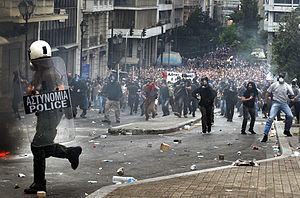
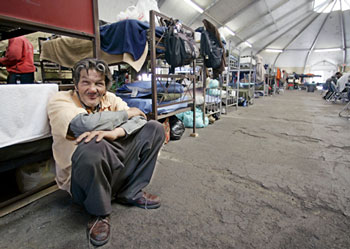
From Economic to Social Crisis: Deficits, Debt and a Little Class History
We welcome returning guest Rick Wolff, Professor of Economics. We talk with him about his latest article, From Economic to Social Crisis: Deficits, Debt and a Little Class History. Earlier this year Rick pointed out how the Democrats and Republicans debate over spending cuts at around 40 to 60 billion. Rick says the debate is inconsequential, when the federal budget’s projected deficit of $1.5 trillion will carry an annual interest cost of $40-60 billion. Now, as both parties are committed to a broken, corrupt system, Rick points out that historically transitioning to another economic system is not in the public discussion. He says, the tools used to recover from the 1930s economic collapse can’t be used today mainly because of the last 75 years of rising national debt and budget deficit.
Professor Rick Wolff:
- This is mostly theater, the people I talked to in the business of finance and government are quite clear that the United States will work this out.
- It is a sign of the political dysfunction that they can’t do it in a reasonable way.
- It is a normal procedure to periodically ask for the debt ceiling to be raised, so that they can borrow the amount of money stipulated by the budgets they have passed. The sitting president asks for the debt ceiling to be raised, Bush did it eight times. It’s normal.
- The only thing the Democrats have left, to not look defeated, is to make a big deal out of the cuts they’re willing to accept are smaller than the “draconian” version that the Republicans want.
- The Republicans don’t know, the Democrats don’t know (what will happen). They fundamentally don’t care, because they have long ago decided that their political needs and strategies are unhooked from the underlying economic situation.
- We’re spending 3.5 trillion dollars this year as a Federal Government. We’re raising 2 trillion. That means 1.5 trillion has to be borrowed otherwise its not going to happen.
- That’s money that will be used to help old people’s needs, help fight wars in Iraq, Afghanistan, Libya, Pakistan, to help cities and states that need support, etc.
- The actual creditors in the immediate situation have nothing to fear.
- For the rest of the world you have a double whammy, which is what we should be thinking about.
- We have the driver of the world’s economy collapse in 2007/2008 and having been unable to recover since.
- The bottom line is this economy isn’t working well and isn’t solving its crisis. This is now a deeper, longer crisis than any since the Great Depression.
- That means every other player in the world, from a Chinese official, to a Spanish bank to an investor in Brazil has to rethink what he or she thought.
- A thousand small decisions are going to be made a little differently from now on.
- There is no proposal working its way through Congress to provide employment to the tens of millions of people who have no work.
- The president’s statement (is a bipartisan commitment to ignore the problem of unemployment.)
- The most extreme proposal is to cut 4 trillion dollars in the next ten years. This year alone the US deficit will run one thousand five hundred billion. 1.5 trillion.
- The debtors know that at a certain point there’s going to be trouble.
- You can’t continue to cut the masses’ standard of living to make money for big bankers, that’s not a political sustainable program. Not here, not in Greece, not anywhere else.
- The silence of the press here is stunning. There have been multiple general strikes across Europe.
- The greed of the corporations, they’ve had their way for 30 years. Republicans and Democrats alike, have basically gone in the direction they want. Corporate taxes have been cut, regulations relieved, money is everything, wealth is everything, consumption is where you are.
- The smaller business (corporations, etc) are late to party. They still want to get theirs. Those who already got theirs don’t want them to mess up the game. I believe you will see big splits emerging among the Right in America because these are different attitudes.
- They want a stable United States so that they can grow in the rest of the world, because that’s where they think growth is coming.
- They don’t need to maintain the roads like they did, they don’t need to maintain the education in this country.
- You can appeal to them, you need these workers, you need these consumers. No we don’t. We don’t need them as workers, and we don’t expect them to be much in the way of consumers, because they would have to borrow and we’re not going to lend to them.
- They would have to have higher wages, and we’re not going to give that to them. We have no reason to, we have cheaper better workers elsewhere.
- You are subjecting your working class to a major sustained attack on its standard of living. To believe this is all going to happen and they’re quietly going to sink some resignation with no consequence is nutty.
- The attempt to isolate, to freeze, to inoculate the population so they don’t fear what’s coming. It’s falling apart in Europe, but it will fall apart here too.
Guest – Richard D. Wolff is Professor of Economics Emeritus, University of Massachusetts, Amherst where he taught economics from 1973 to 2008. He is currently a Visiting Professor in the Graduate Program in International Affairs of the New School University, New York City. He also teaches classes regularly at the Brecht Forum in Manhattan.
Afghanistan War, Civil Liberties, Extraordinary Rendition, FBI Intrusion, Guantanamo, Habeas Corpus, Human Rights, Surveillance, Targeting Muslims, Torture, Truth to Power, War Resister
Podcast: Play in new window | Download
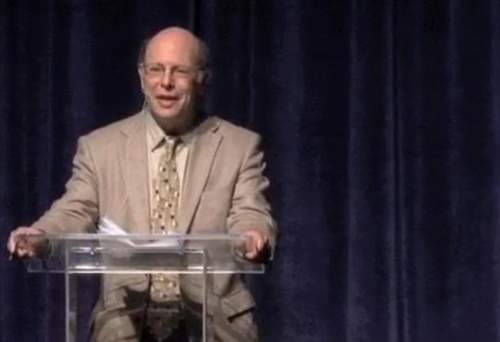
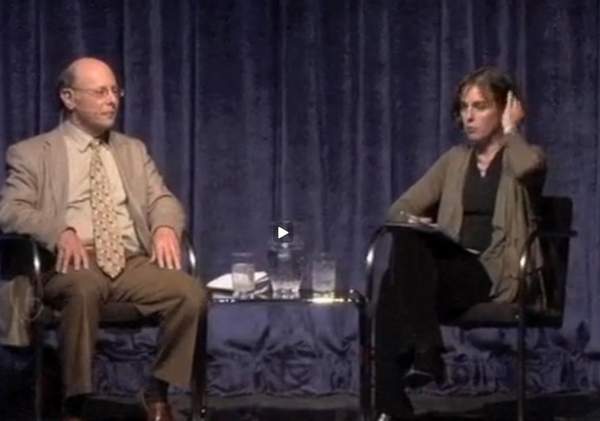
Ten Years after 9/11: War, Operation American Condor (Guantanamo) , Civil Liberties and Hope
We hear a talk from our own Michael Ratner who spoke at the James A Little Theater in Santa Fe, New Mexico. He was also in conversation with radio host Mary Charlotte Domandi. The event was titled – Ten Years after 9/11: War, Operation American Condor (Guantanamo) , Civil Liberties and Hope.” Michael is introduced by Mary-Charlotte Domandi producer and host of the Santa Fe Radio Cafe on KSFR 101.1 FM (Santa Fe, NM, Public Radio)
Michael Ratner is President of the Center for Constitutional Rights (CCR) in New York and the European Center for Constitutional and Human Rights (ECCHR) in Berlin. Both are non-profit human rights litigation organizations. He was part of the small group of lawyers that first took on representation of the Guantánamo detainees in January 2001, a case that resulted in a victory in the Supreme Court in 2004. CCR established a network of over 600 pro-bono lawyers to represent Guantánamo detainees and continues that work.
He has filed criminal complaints in the courts of Germany, France and Spain against former US officials including Secretary of Defense Rumsfeld seeking the initiation of criminal prosecutions against them for the Abu Ghraib abuse and torture as well as for their actions at Guantánamo. Recently, CCR and ECCHR prepared papers to file in Switzerland against George W. Bush for torture. As a result Bush canceled his trip. A major area of Mr. Ratner’s litigation and writing is the enforcement of the prohibition on torture and murder against various dictators and generals who travel to the United States. He has sued on behalf of victims in Guatemala, East Timor, Haiti, Argentina, among other countries. He has also litigated numerous suits to prevent or stop illegal US wars ranging from Central America to Iraq. A constant in his work has been litigation against government spying and surveillance of activists.
Michael Ratner’s books, authored or coauthored, include the soon to be published, Hell No: Your Right to Dissent in 21st-Century America (2011) and Killing Che: How the CIA Got Away with Murder (2011). Other books include International Human Rights Litigation in U.S. Courts, Second Edition (2008); Against War with Iraq (2003); Guantánamo: What the World Should Know (2004); and The Trial of Donald Rumsfeld: A Prosecution by Book (2008). Ratner has taught human rights litigation at Yale and Columbia Law Schools. A past president of the National Lawyers Guild, Ratner has received many awards including Trial Lawyer of the Year, the Columbia Law School Medal of Honor (2005), the North Star Community Frederick Douglass Award, Honorary Fellow at the University of Pennsylvania Law School (2005), and The Nation Institute/Puffin Foundation Prize for Creative Citizenship (2007). In 2006, the National Law Journal named Ratner one of the 100 most influential lawyers in the United States.
—-

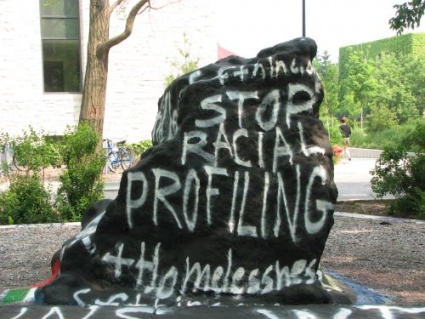
Right-Wing Firms Train Public Servants on Terror Threats
There is a sprawling hidden world of counter-terrorism organizations growing beyond control in the United States. Twenty-four of them were created by the end of 2001, including the Office of Homeland Security and the Foreign Terrorist Asset Tracking Task Force. The next year, 37 more were created to track weapons of mass destruction and collect threat tips. By 2009, nearly 260 organizations were created as 854 thousand civil servants, military personnel and private contractors with top-secret security clearances monitor national security concerns. However, according to a report from the Public Research Associates, those same concerns have bolstered a class of self-proclaimed terrorism experts who decry Islam as an evil religion of terrorists and routinely brand Muslims as primitive, vengeful, duplicitous, and belligerent people who oppress women and gays, and have values irreconcilable with “western Judeo-Christian civilization.”
In fact, when PRA discovered earlier this year that the Massachusetts Bay Transportation Authority (MBTA) had contracted with Security Solutions International to conduct a training on radical Islam, they notified the Muslim American Society, ACLU, and our other advocacy partners, who used PRA’s research to compel the MBTA to cancel the agency’s training.
Chip Berlet :
- As part of the Homeland Security Initiatives and working with the FBI in other aspects of the national security apparatus, there was a need to train thousands as part of a local state and federal counter-terrorism “experts.”
- Some of these trainings are quite good. The problem is that there are a handful of groups that train hundreds and hundreds of local, state and federal counter-terrorism experts, with rhetoric that is basically Islamophobic.
- In the late 1970s there was an attempt to restrain this illegal surveillance. I’d have to say right now it’s worse.
- What used to be done illegally and covertly is now done ostensibly legally and openly and in fact proudly by both Democrats and Republicans who should be ashamed.
- The whole strategic suspicious reporting initiative which basically is a pipeline for unverified rumor and innuendo through local police departments up through a chain of information agencies to the federal government. We know in Europe this kind of reporting is unconstitutional and bad for society.
- Now, everyone that was considered illegal and unconstitutional for which there were Congressional hearings and reforms under Jimmy Carter, now we do it.
- In proper training that is actually looking for criminal activity, not people of color who wear garb that we’re scared of. What’s going on here is untrained, badly trained officers are reporting the names of people up into a huge infrastructure of information data storage, based on bias they’ve not been trained to resist or confront within themselves.
- We described this whole process as a platform for prejudice in a report by Tom Cincotta
- Tom has on his wall a wall chart of all the agencies of this information reporting system and it has 150 dots so inter-connected, no one can control this.
- I’m urging people to form broad coalitions across the political spectrum.
Guest – Chip Berlet, (senior analyst) is a veteran freelance writer and photographer who specializes in investigating right-wing social movements, apocalyptic scapegoating and conspiracism, and authoritarianism. A PRA staffer since 1982, he has written, edited and co-authored numerous articles on right-wing activity and government repression for publications as varied as the Boston Globe, the New York Times, The Progressive, The Nation, The Humanist, and the St. Louis Journalism Review.
Civil Liberties, Criminalizing Dissent, Habeas Corpus, Human Rights, Iraq War, Supreme Court, Truth to Power, War Resister
Podcast: Play in new window | Download
Updates:
——–
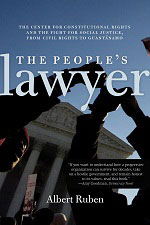
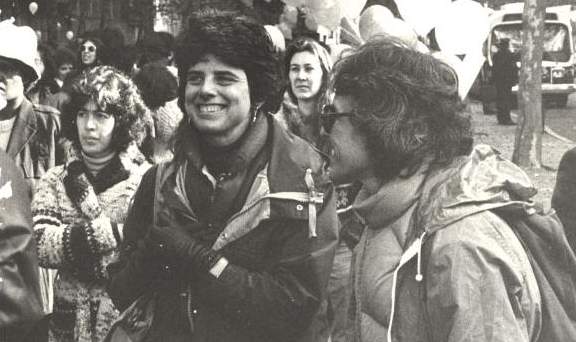
The People’s Lawyer: The Center for Constitutional Rights and the Fight for Social Justice, From Civil Rights to Guantánamo
The People’s Lawyer by author and Guild writer Albert Ruben, is the first comprehensive history on the Center For Constitutional Rights and tells the Center’s story from the civil rights era to today’s legal battles on habeas corpus, torture and Guantanamo Bay Prison. The book highlights critical legal fights taken on by CCR revealing innovative tactics that have evolved within the radical organization. Albert Ruben points how the Center for Constitutional Rights continues to fight with the same spirit, audacity and courage it was founded with. As many listeners may know, CCR has been an important corner stone to this radio show because our own Michael Ratner has been with the Center for 4 decades.
Albert Ruben:
- The founders (of CCR) were 4 in number. They were Arthur Kinoy, Morton Stavis, Bill Kunstler and Ben Smith. Smith was a Southerner, he had an office in New Orleans, and Stavis, William Kunstler, and Arthur Kinoy were northerners who were working for civil rights in the South.
- They were all working their separate beats, they all knew each other and were in communication about the work they were doing. They decided that they needed something, primarily financially, to keep their work going.
- So they got in touch with a lawyer they all knew with financial means named Robert Boem. They incorporated it in New Jersey, and it became ultimately the Center for Constitutional Rights.
- They had a very small office at the beginning with one lawyer in Newark.
- The anti-war movement, the McShirley Case. It threw the Center into the government misconduct orbit. It was in the course of litigating that the Center became aware that the Federal Government was not going to be on the side of the angels.
- (From Wikipedia) Dombrowski alleged that members of his organization, the Southern Conference Educational Fund, were subjected to continuous harassment, including arrests without intent to prosecute, and seizures of necessary internal documents. Furthermore, the State was threatening to use anti-subversion statutes to prosecute the organization, which was a group of Southern liberals dedicated to fighting for civil rights for Blacks in the South.
- The Dombrowski case, allowed the Center and a lot of lawyers to use that decision to challenge cases that brought against civil rights attorneys and a lot of people who were working in the South and caught up in state laws, that were using anti-red laws to take them out of state courts and bring them into federal courts.
- So, the Center lawyers were very acutely aware that they had on their side the federal courts. What happened with McShurley, was that it overturned that faith in the federal court system. The case led the Center to realize that government misconduct was an area that would be of interest. They could no longer count on federal court to be their allies.
- There were women on the staff of the Center who were both Center lawyers as their occupation but they were also women, and as women they were caught up in the womens movement. They brought the two together.
- It was the early days of the womens movement. The Center didn’t see itself as a place that would take on criminal law, it was more of a movement organization. The politics of the founders were central to their beings. They made their politics guide them in whether a case was something that they should adopt.
- Part of the Center for Constitutional Right’s mission was educational, that’s not understood I think.
Guest – Albert Ruben, screen and television writer and has served as an officer of the Writers Guild of America East.
—
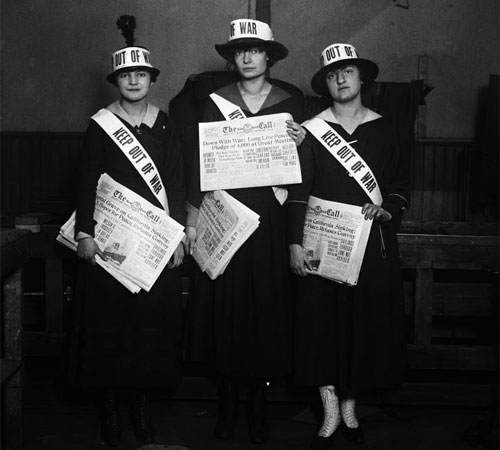
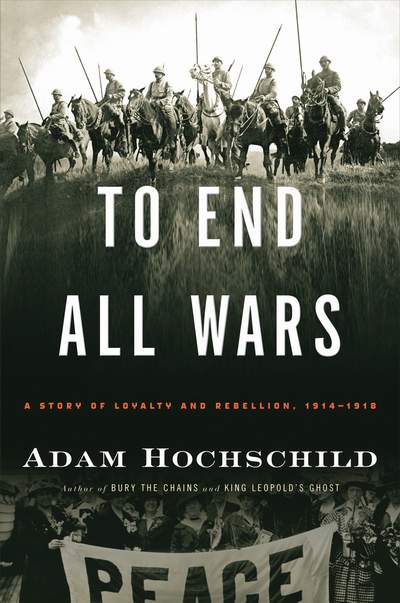
TO END ALL WARS: A Story of Loyalty and Rebellion 1914-1918
We welcome returning guest Adam Hochschild, historian and author of the new book TO END ALL WARS: A Story of Loyalty and Rebellion 1914-1918. In the book, Hochschild has focused on the antiwar movement in Great Britain. Near the beginning of World War I, 20 thousand British men refused the military draft on principle, others were conscientious objectors and nearly 6 thousand of the men were sent to prison. Hochschild relied on personal letters, diaries and memoirs to assemble this unique historic report on Britain’s powerful anti-war movement. The book also unearths how anti-war activists were monitored constantly by civilian and military intelligence as agent provocateurs bragged about their accomplishments. To End All Wars is a compelling account of the heroic anti-war struggle while top writers in that period such as Rudyard Kipling and H.G. Wells, contributed rhetoric to support the war propaganda.
Adam Hochschild:
- I always like to think we can learn things from history. I think you learn to be inspired by people who stuck to their ideals, even in very difficult times,
- I thought it would be a challenge to write a book centering around people who I admire tremendously although they lost, the cause that they were struggling for. I’ve always been fascinated by the first World War, which remade the world for the worst in every conceivable way and killed around 20 million people in the process.
- I’ve been particularly struck by those resisted that war on both sides, who said this war is not worth these millions of lives and we’re not going to fight.
- I wanted to talk about 2 different people in this war, the generals who fought this terrible war filled with illusions, that the next battle would bring a great victory, and then I was also fascinated by these pacifists and war resistors.
- 20 thousand men of military age, refused to go into the British Army. The largest outright refusals in any of the warring countries. Of that number many of them accepted alternative service under conscientious objector. Driving ambulances, or work in war industry factory.
- Many men refused that and more than six thousand went to prison.
- Aggression among Germany and Austria-Hungary did really ignite the war. You can’t really say its a war between good guys and bad guys, because the allies at first were Britain and France allied with Russia. The absolute last remaining monarchy in Europe.
- Wonderful trilogy of novels by Pat Barker, The Eye In the Doors. Had I been alive in that time in 1917, I would like so many people did at that time, who greeted the Russian Revolution with enormous hope.
- I guess I’m thinking more than anything else, of the way the first world war, made the second world war almost certain. There was something about the way the war ended that gave rise to bitterness and the Nazis in Germany.
- Right up to the very last minute, the German people were fed a diet of totally triumphant propaganda.
- Eugene Debbs got up of his sick bed to do a speaking tour against the war. The Wilson administration charged him with subversion, he was still in prison when got nearly a million votes for president of a Socialist party ticket.
- Illusion that the war is going to solve more problems than it causes. Another illusion is that it will be over quickly, you remember George Bush on the aircraft carrier.
Guest – Adam Hochschild, award-winning author and journalist who has written for The New Yorker, Harper’s, The New York Review of Books, and The New York Times Magazine. His books, King Leopold’s Ghost: A Story of Greed, Terror, and Heroism in Colonial Africa (1998) and Bury the Chains (2005) were finalists for the National Book Award and have won numerous other prizes. Hochschild teaches narrative writing at the Graduate School of Journalism at the University of California at Berkeley.
—————————————————-
CIA Sponsored Terror, Civil Liberties, Crony Capitalism, Human Rights, Hydraulic Fracturing, Targeting Muslims, Truth to Power
Podcast: Play in new window | Download
Updates:
—-


Natural Gas Drilling Moratorium To Be Lifted in New York
New York Governor Andrew Cuomo is pushing to lift the moratorium on natural gas drilling, known as hydraulic fracturing in New York State. Hydro-fracking as its called is in many opinions an environmentally wreck-less technique to extract natural gas from shale. While the lifting of the moratorium is still months away, it comes despite the massive efforts from environmental and community groups in New York, New Jersey and Pennsylvania who have protected the Marcellus Shale watershed.
In a statement released by the State Department of Environmental Conservation, there will be environmental restrictions placed on the natural gas drilling permits in New York State, such as no drilling within 2000 feet of a public reservoir.
However, ninety percent of the New York City’s drinking water comes from ground zero of where various oil companies want to drill into the Marcelle Shale for natural gas. Every time a well is drilled, the companies use an estimate of 5 to 9 million gallons of water. Each time a well is fractured, it’s another 5-9 million gallons of water, a well can be fractured multiple times. Up to 275 different toxic chemicals are used in the process and after the well is drilled, there are millions of gallons of industrial waste, it’s essentially radioactive water. 40-70 percent of this water stays underground.
The watershed is 13 thousand square miles and includes four and those that want to mine this resource say it will reduce dependence on foreign oil and boost the economy. However, many have shown this statement to be false as the natural gas from the United States is being sold to foreign countries such as Norway and France.
Meanwhile, a lawsuit is pending against several federal agencies affiliated with the Delaware River Basin Commission to block final regulations on hydro-fracking until a full environmental review can be conducted. Past shows on hydro-fracking: Law and Disorder March 21, 2011 / Law and Disorder March 29, 2010
Attorney Jordan Yeager:
- Hydro-fracking is part of a broader industrial practice. Basically what we’re doing is allowing companies to drill down a mile deep through our aquifers, which we all depend on for our drinking water.
- Once they get down there, they start to drill horizontally, they’re aiming for the shale formations underground.
- In order to release the gas from the shale, they blast it with this nasty stuff, chemicals that they don’t want to disclose.
- They’re also developing and industrializing large swaths of land. When they do that they’re polluting the waters of New York and Pennsylvania and every place where this is happening.
- Generally what is proposed is to allow around 85 percent of New York State that has Marcellus Shale to be open to drilling that they would not allow drilling to take place in the New York City and Syracuse watersheds. And they would not allow it to take place within what they primary aquifers and state owned game land.
- But all other places and private land, they would allow it to happen.
- Those people who live in New York City, and in Syracuse, those people would be protected from this activity, but the people in the rest of the state would be subjected to it.
- For every 17 or 18 gas wells that you drill, you can expect to see water contamination from that.
- But then we’d ask why would we allow the rest of New York to be exposed to it?
- In Pennsylvania, its completely ruining the roads in the northern half of the state, its tearing up communities. In Bradford County we had a blowout, not too long ago, which caused damage not only to streams but to drinking water in that area.
- We are going to see continued failures wherever this happens. The question is . . . are we going to allow it to happen? Are we going to force this practice to follow the science and only allow it to happen if the science says it can be done safely? We’re simply not there.
- In Pennsylvania, what we’re seeing is most of those jobs they’re talking about are going to folks outside the state. They’re bringing in people from the western states, who have experience in drilling. You to also look at the broader economic impact. When a community loses its water supply, that is bigger impact than a handful of jobs.
- If we don’t have clean water in order to live and for other businesses to operate, we’re going to see much greater economic damage.
- We’ve been dealing with the Delaware Water Basin Commission to make sure they don’t allow the Delaware River to be poisoned by these activities.
- When the people of Pennsylvania, the people of New York and New Jersey, are fully awakened to the dangers of this activity, we’ll be able to build a movement and reign it in.
- There are dangers associated with these industrial activities, and we have to look at the dangers in the broadest sense.
- Natural gas has been identified by some as a clean fuel, but that’s when they compare it to how it burns and how coal burns. That’s one part of the natural gas story.
- You have to also look at the dangers in the process of extraction. When we drill down a mile deep, we’re finding naturally occurring radioactive material and as part of the drilling process, we’re then bringing that up to the surface.
- Look, we need energy. We need to decide what level of risk we’re comfortable with. In my opinion, we need to be looking at renewable energy, like solar, like wind, get investments, and get them to a larger scale.
- With this new direction from New York, we need to make sure there’s adequate time public participation and what was announced last week, is they would only allow a 60 day public comment period. That’s simply not enough. They haven’t looked at the research that’s been established since they closed the record in 2009.
- The public needs more than 60 days to educate the folks at the state level about what we’ve been learning since December 2009. We ought to be looking at a 6 month period on what was proposed for New York State.
Guest – Attorney Jordan Yeager, a National Lawyers Guild member, a cooperating attorney with the Center for Constitutional Rights and member of Damascus Citizens. Curtin & Heefner LLP recently elected leading public interest attorney Jordan B. Yeager to its partnership. Mr. Yeager is a member of the firm’s Employment and Public Sector Section. Formerly in private practice as the named partner in a public interest law firm, Mr. Yeager served successfully as counsel in several groundbreaking cases, including matters involving constitutional rights issues; claims of reasonable accommodation against a municipal defendant; and the right to a jury trial in a whistle-blower retaliation case.
——

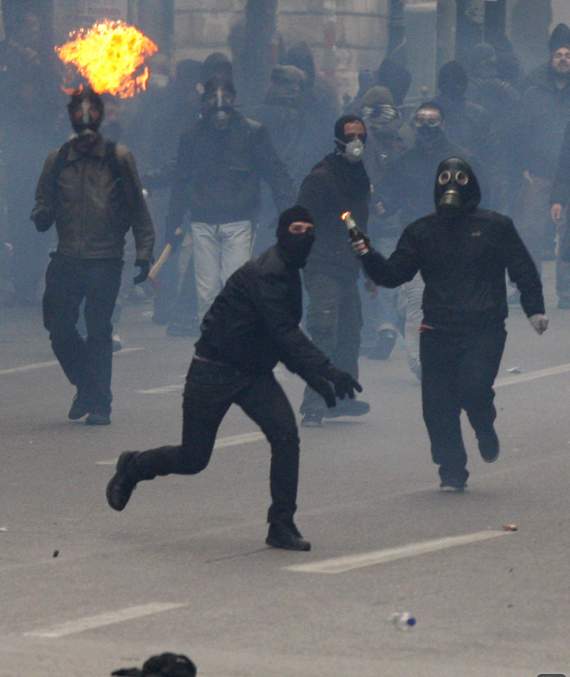
Second Austerity Measure Imposed On Greece
Protests and demonstrations continue to erupt in Greece as demonstrators rise up in the streets against deep cuts in services and jobs from austerity. Austerity is the name of the government’s response to the demand of its creditors. Austerity imposes on society a severe regimen of rising taxes, or cut government spending to please and satisfy creditors. Greece as predicted by Economics professor Rick Wolff a year ago has been hit the hardest by the global economic disaster. Why? For many reasons, it has a strong working class, socialist roots and a public sector made primarily of union jobs. The austerity has cut into the working class jobs as the country privatizes the post office, gas, water works and railway. Meanwhile, the wealthy continue to evade taxes in Greece and in the United States. Past shows on Greece: Law and Disorder
Professor Costas Panayotakis:
- I was in Athens that last few days, what you have in the European Union is imbalances that resulted partly from the introduction of the Euro, but also, by the general phenomena in the division of the world of some countries more technologically advanced and others that are not.
- Right now you have a crisis, partly a European crisis, its not that the Greek culture is a pathological culture, as the mainstream media sometimes presents. Each crisis has its specifics, Ireland, Portugal, in Greece, the specificity is that the wealthy are not paying taxes.
- There are tax evasion problems, the problem in Greece is of primarily of revenues rather than spending.
- The mainstream media talks about the “bloated” public sector of Greece. The public sector is aligned with other public sectors in other countries. Now what they’re trying to do of course, traffic out jobs from the public sector to make Greece a public sector a small part of the economy as it is in developing countries in Africa.
- Because its debt has become so unmanageable, there was an austerity pack that was adopted last year that 110 billion dollars. Drastic cuts in public spending, welfare state,
- Now what’s happened as is often the case, with IMF problems, the program didn’t work the way they said it was going to. Now Greece needs another loan to keep servicing its debt. One of the conditions is that Greece has this huge fire sale of all its public assets. The hope is that its going to raise 50 billion Euros.
- Because values in all the public companies have shrunk rapidly, whoever buys them will buy at a really low price. Many Greeks are up in arms about that. Now they see the banks wanting to follow up with more of the same, that’s why 80 percent of the Greeks oppose this policy.
- We had a 2 day general strike last week, a 48 hour general strike had not happened in Greece for decades.
- You also have a demand for real democracy, direct democracy. One of the demands was not to pass the austerity package.
- Every 3 months there are news measures that have to be adopted in order for Greece to get the next installment of the loan. If Greece defaulted on their loan, it would effect the Eurozone in a very direct way, it would effect European banks.
- I think the lesson to take away from this is fighting back is necessary.
Guest – Costas Panayotakis, a professor at the New York City College of Technology.
———————————————–



















